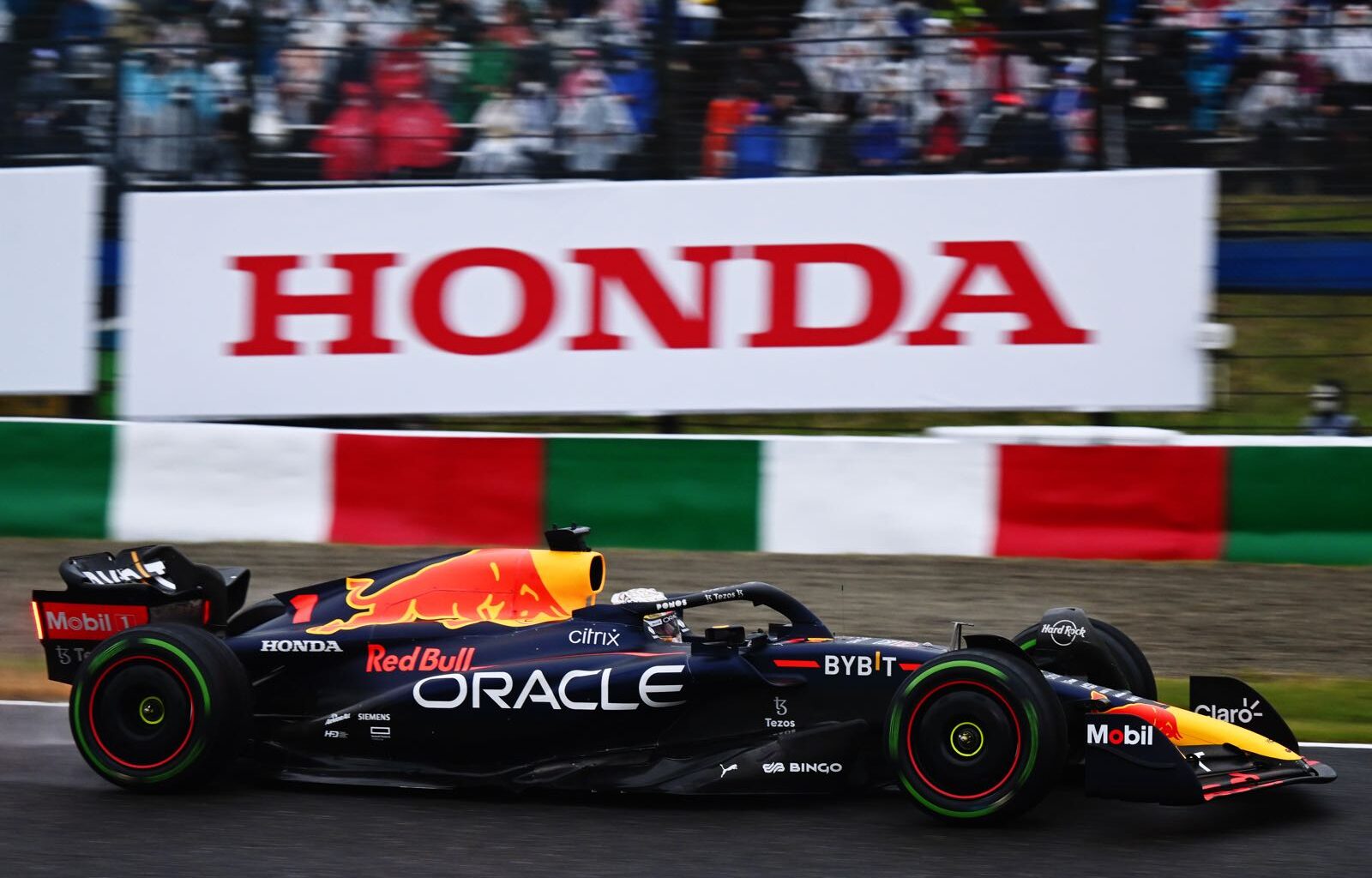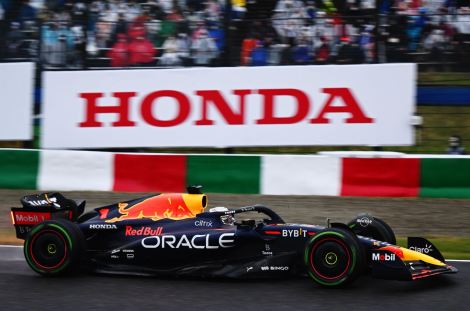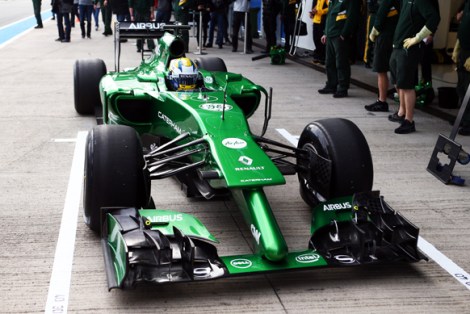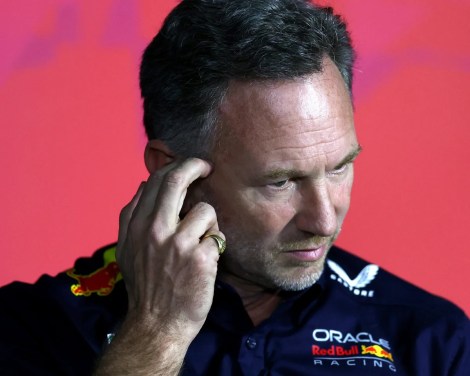Honda calls FIA’s bluff: Electrification is here to stay, whether Sulayem likes it or not – The political tug of war over Formula 1’s future power unit regulations has taken yet another dramatic turn. Just when you thought the sport was quietly motoring towards its new 2026 turbo-hybrid era, in strolls FIA President Mohammed Ben Sulayem with an unfiltered opinion and a not-so-subtle attempt to steer the conversation straight back to the Stone Age. Or rather, the V8 era.
Yet before anyone could start romanticising screaming engines and petrol-soaked nostalgia, Honda has come forward with a rather sobering dose of reality. No, they are not interested in ditching hybrids. No, they are not playing along with the FIA’s back-to-the-future daydream. And yes, they are fully committed to electrification—even if that means staring down the governing body itself.
Aston Martin offer an update on 2026 progress
Honda doubles down on the hybrid vision
While Ben Sulayem coyly flirts with the idea of ditching hybrids altogether in favour of a return to simpler, cheaper combustion engines by 2029, Honda is digging its heels firmly into the tarmac. Koji Watanabe, President of Honda Racing Corporation (HRC), made it abundantly clear in an interview with Japanese website AS-Web that the manufacturer remains wedded to the concept of electrification.
“Honda continues to want Formula 1 to remain the ‘premier class’ in motorsport,” Watanabe explained, in what can only be described as the politest corporate mic drop in recent memory.
“We will continue to discuss which power unit is suitable for this. Honda’s current position is that we believe electrification is a very important component on the path to a sustainable future.”
That phrase, sustainable future, has become the cornerstone of Honda’s motorsport doctrine. And unlike certain other engine suppliers who ran at the first sign of hybrid complexity (Red Bull, we’re looking at you and your shopping spree with Ford), Honda is all in on the long game.
Caterham F1 2014
The ghost of 2014 still looms large
The irony, of course, is that the current hybrid era—introduced in 2014—was originally met with groans, eye-rolls, and paddock-wide existential dread. The engines were too quiet, too complex, and too prone to blowing up during free practice. Yet over time, the technology matured, the sound complaints were drowned out by speed and sophistication, and even the purists eventually gave up whining.
Now, as Formula 1 prepares to launch an updated version of these turbo-hybrid power units in 2026, Honda is already laying the groundwork for what lies beyond. The Japanese marque has no interest in turning back the clock just to save a few quid and throw environmental credibility out the exhaust pipe.
But FIA President Ben Sulayem, never one to stay silent for long, has his own vision. He wants to make engines cheaper and simpler, using the logic that most manufacturers already produce V8s in their road cars. He believes such a change makes “commercial sense.”
Commercial sense for whom, exactly? The fans? The bean counters? Or just the grumpy old men who still think refuelling should come back?
Audi and Honda: unlikely bedfellows in the hybrid honeymoon suite
What Ben Sulayem’s plan conveniently overlooks is that major manufacturers like Audi and Honda specifically committed to Formula 1 because of the sport’s continuation of hybrid technology into the next regulatory cycle. Audi’s impending arrival in 2026 is built entirely around the idea of showcasing their hybrid prowess with Sauber. Honda, meanwhile, is returning with Aston Martin for exactly the same reason.
So to yank the rug out from under them by 2029 would not only be absurd, it would be self-sabotage of the highest order.
Imagine getting married because your partner promised stability, only for them to announce three years later they’ve decided to quit their job, buy a motorcycle, and live off-grid. That is, more or less, the FIA’s current roadmap.
Aston Martin’s growing hybrid brain trust
In the meantime, Honda is not wasting a single second. The Japanese outfit is already deep in development with Aston Martin on the 2026 car, and there is a very interesting cast of characters involved in this collaborative effort.
Yes, Adrian Newey is lurking somewhere in the shadows of Silverstone, now officially onboard as Technical Director and a shareholder of the Green machine. But when asked whether the legendary design guru had sent Honda a personal list of hybrid demands, Watanabe was diplomatic.
“Aston Martin has already made various requests to increase its competitiveness,” he said. “We don’t know if these requests came directly from Newey.”
Translation: Yes, Newey probably faxed over a 17-page thesis with annotated drawings and handwritten notes on airflow direction.
Still, Honda is not just relying on Newey’s alchemy. There’s another powertrain savant now embedded in the Aston Martin-Honda matrix: Andy Cowell, the former Mercedes engine boss and mastermind behind the domination years. Watanabe was quick to acknowledge Cowell’s impact.
“This is an advantage for us. It allows us to enter into direct dialogue. We are currently in consultation with Aston Martin regarding the powertrain layout.”
Honda is clearly assembling a dream team to make its hybrid ambitions work. If only the FIA could see the benefit of such effort, rather than plotting an engine revolution no one actually asked for.
Sulayem’s 2029 combustion crusade
Sulayem is now on record saying he hopes to introduce a completely new engine formula as early as 2029. In his words, this would feature “combustion engines, but without hybrids.” It’s a curious idea at best, a regressive one at worst.
Sure, the sound might be louder, the components might be cheaper, but let’s not pretend this would align with global automotive trends. While carmakers are investing billions into electrification and hybrid systems, Formula 1 regressing to all-petrol powertrains would be an environmental PR disaster.
It would also likely alienate the very manufacturers keeping the sport afloat. Audi might think twice. Honda might leave—again. And who would be left to power the grid? Ferrari? Red Bull’s outsourced Ford hybrid division? Or maybe Andretti’s Chevrolet-powered dreams from the cornfields of Indiana?
The verdict: Is F1 about speed, spectacle, or survival?
As Formula 1 balances its identity crisis between tradition and transition, Honda’s stance serves as a timely reminder that the future isn’t built by looking in the rearview mirror. The sport’s hybrid era has been expensive, yes, but it has also ushered in one of the most technologically advanced periods in its history.
The FIA President might fantasise about returning to simpler times, but manufacturers like Honda are making it clear: they’re not here for a nostalgia tour. They are here to innovate, dominate, and electrify the future of motorsport.
But what say you, the jury? Should Formula 1 double down on hybrid and electric innovation, or is there still something sacred about the raw roar of a V8? Would a return to simpler engines revive the sport, or simply drive away its biggest backers?
Let us know your verdict in the comments below.
This article was brought to you by The Judge.
MORE F1 NEWS – Verstappen’s successor named
TJ13 investigates the fallout of Christian Horner’s dramatic dismissal and the growing unrest behind Red Bull’s carefully polished façade – Christian Horner’s shock ejection from Red Bull Racing may have already been filed under “inevitable” in the minds of some F1 insiders, but for many within the paddock, the drama is far from over. In fact, the emotional tremors from the abrupt decision are only beginning to ripple outward.
Now, a close friend of the ousted team principal has launched a blistering attack on Red Bull’s Austrian management, claiming betrayal, bitterness and backroom backstabbing brought the curtain down on Horner’s 19-year reign.
Horner’s friend—who understandably prefers to remain anonymous, presumably to avoid being booted out of any more paddocks—isn’t mincing words. Speaking to The Sun, the insider insists that the 51-year-old was blindsided by the decision and is still waiting for so much as a formal explanation. Yes, this is Formula 1 in 2025, but even in a sport where knives are routinely sharpened behind closed motorhome doors, the saga of Horner’s firing feels like a script rejected from a particularly cutthroat Netflix drama….READ MORE ON THIS STORY



